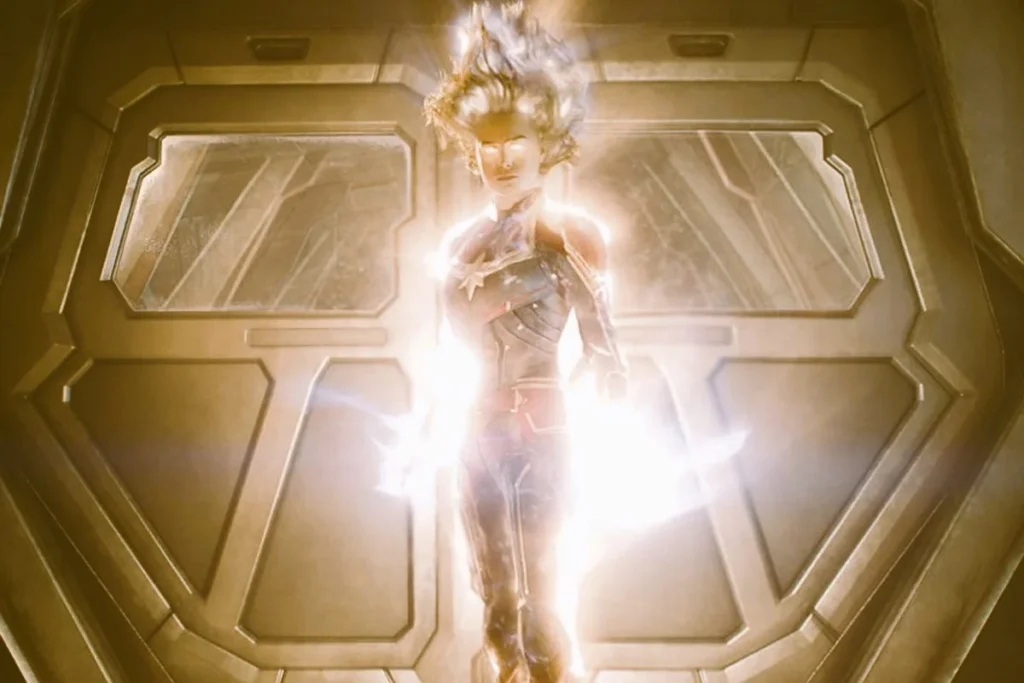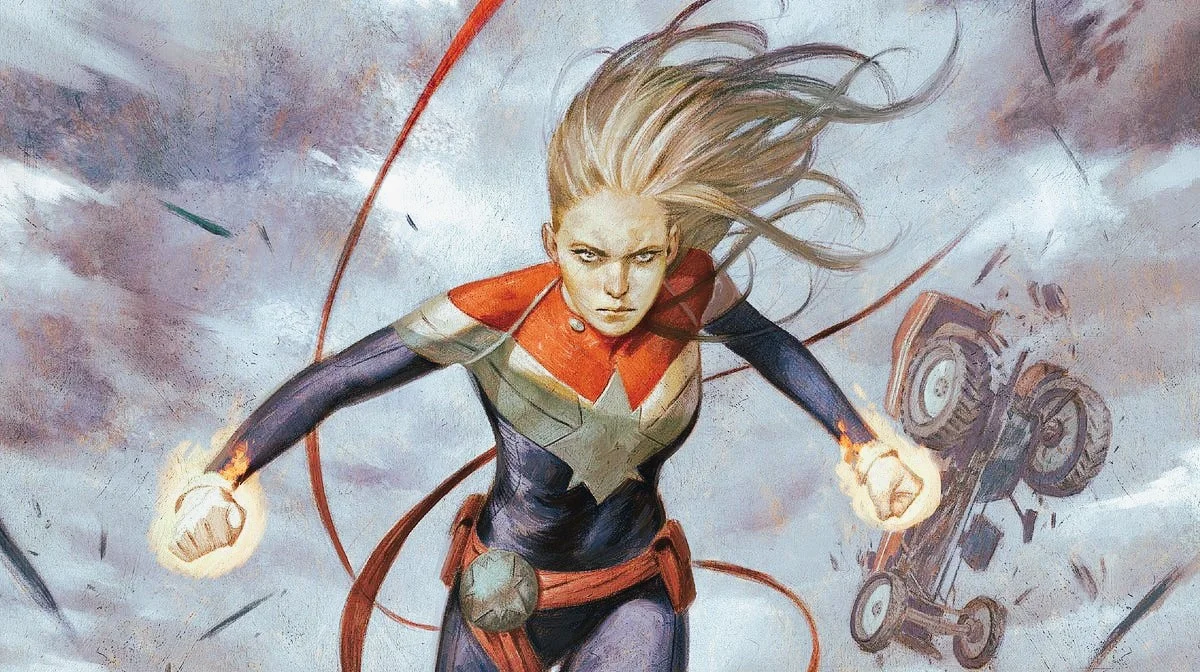-At Movieszbreakdown, you will find answer of What is the significance of Captain Marvel being an unlikable character in the film “Captain Marvel”?. So, read it thoroughly and get more other interesting and amazing blogs on my site.
Captain Marvel, a person known for her solidarity, versatility, and steadfast assurance, has been a conspicuous figure in the Marvel Universe for quite a long time. With the arrival of the film “Captain Marvel,” crowds were acquainted with another cycle of this famous superhuman. One viewpoint that started conversations and discussions among watchers was the depiction of Captain Marvel as an unlikable person in the film. This article digs into the meaning of Captain Marvel’s unlikable qualities and inspects how they add to the intricacy of her personality. By investigating the advancement of Captain Marvel in comic book books, examining her personality in the film, and talking about the effect of her capricious depiction, we mean to uncover the more profound layers of this superheroine and the ramifications of her forward thinking legend portrayal in film.
Meet Captain Marvel: The Proudly Unlikable Courageous woman

Getting to Realize Captain Marvel:
Captain Marvel, otherwise called Carol Danvers, is a complicated and convincing person in the Marvel universe. She is a previous U.S. Aviation based armed forces pilot who acquires godlike capacities after a mishap including outsider innovation. With her furious assurance and unfaltering mental fortitude, Captain Marvel remains as an image of solidarity and flexibility.
Setting the Stage: “Captain Marvel” Film
The film “Captain Marvel” acquaints crowds with Carol Danvers as she explores her past and finds her actual way of life as a strong superhuman. Set during the 1990s, the film grandstands Captain Marvel’s excursion to uncover the insider facts of her past while fighting outsider dangers close by recognizable appearances like Nick Fury.
The Affability Problem: Dismantling Film Characters
Translating Affability in Characters:
Amiability in film characters alludes to the crowd’s close to home association and liking towards them. It frequently comes from interesting attributes, virtues, or allure showed by the person on screen.
The Agree-ability Condition: Why It Makes a difference
Agree-ability assumes an essential part in drawing in crowds and molding their view of a story. Characters that resound with watchers can inspire compassion, venture, and close to home connection, upgrading the general review insight.
Captain Marvel Released: A Comic Book Odyssey
The Beginning of Captain Marvel in Comic books:
Captain Marvel made her presentation in Marvel Comic books in the last part of the 1960s as a person named Carol Danvers, at first depicted as a supporting person in the superhuman universe.
Transformation of a Legend: Captain Marvel’s Development
Throughout the long term, Captain Marvel went through huge changes in the comic books, developing from a simple companion to an impressive hero with an unmistakable character and convincing storyline.
Unloading the Riddle: Captain Marvel’s Unlikable Appeal
Disentangling Captain Marvel’s Personality Idiosyncrasies:
In the film “Captain Marvel,” Carol Danvers is depicted as serious areas of strength for an and confident person, unafraid to oppose standards and challenge authority. Her dull disposition and refusal to adjust to customary assumptions make her a refreshingly eccentric courageous woman.
The Courageous woman’s Excursion: Enthralling Person Improvement
All through the story, Captain Marvel goes through an extraordinary excursion of self-revelation and strengthening, revealing insight into her weaknesses, inward strength, and the intricacies of her personality. Her development from an insubordinate outsider to a loved legend features the force of versatility and self-acknowledgment.
All in all, Captain Marvel’s depiction as an unlikable yet convincing person in the film “Captain Marvel” adds profundity and legitimacy to her persona, testing regular generalizations and commending the magnificence of defect. As crowds keep on embracing mind boggling and diverse legends, Captain Marvel sparkles as a reference point of strengthening and motivation in the steadily developing scene of superhuman storytelling.
Effect of Captain Marvel’s Unlikable Qualities on Character Development:
Investigation of Captain Marvel’s Unlikable Traits:
Captain Marvel, depicted by Brie Larson, challenges the model of the ideal, amiable legend. She is depicted as proud, indiscreet, and frequently seems to be confined or apathetic. These characteristics put her aside from customary superhuman depictions, welcoming crowds to address being a legend.
Examination of How Unlikable Qualities Shape Character Arc:
Captain Marvel’s unlikable qualities assume a significant part in her personality improvement. Through her defects, she goes through an excursion of self-disclosure and development, figuring out how to embrace her blemishes and bridle her actual power. Her excursion from being seen as unlikable to turning into a strong and certain legend is a demonstration of the intricacy of human instinct and the force of strength.
Gathering and Debates Encompassing Captain Marvel’s Characterization:
Crowd and Pundit Responses to Captain Marvel:
Captain Marvel’s portrayal ignited different responses among crowds and pundits. Some lauded the film for its strong depiction of a defective legend, while others found it trying to interface with a traditional person assumptions. Brie Larson’s exhibition as Captain Marvel got both recognition and analysis for its nuanced depiction of a complicated person.
Discussions in regards to the Characterization:
The portrayal of Captain Marvel as an unlikable legend touched off banters inside the fan local area. A few contended that her defects made her more interesting and savored the takeoff from the ordinary legend form. In any case, others communicated distress with a not fit the legend form of the customary friend in need figure. The contentions encompassing Captain Marvel’s portrayal featured the developing scene of bravery in contemporary film.
The Meaning of Modern Legend Depictions in Cinema:
Grasping the Job of Forward thinking Legends in Film:
Forward thinking legends like Captain Marvel challenge laid out standards and widen the portrayal of chivalry on screen. By embracing characters with blemishes and intricacies, movie producers welcome crowds to investigate the subtleties of chivalry past the natural figures of speech of flawlessness. These contemporary legends offer a more different and comprehensive vision of courage, mirroring the intricacy of human encounters.
Effect of Assorted and Complex Characters on Crowd Perception:
The depiction of modern legends in film significantly affects crowd discernment and social accounts. By exhibiting legends who wrestle with their blemishes, fears, and disappointments, movie producers make space for sympathy, reflection, and strengthening. These different and complex characters move crowds to embrace their own blemishes and assets, empowering a more comprehensive and empathetic perspective on bravery.
All in all, Captain Marvel’s unlikable qualities challenge customary thoughts of chivalry, welcoming crowds to reexamine being a legend. By embracing intricacy, defect, and strength, Captain Marvel exemplifies another rush of valor that praises the force of realness and self-discovery.In end, the depiction of Captain Marvel as an unlikable person in the film “Captain Marvel” fills in as a demonstration of the developing scene of legend portrayal in film.
By testing conventional thoughts of chivalry and diving into the intricacies of character attributes, this portrayal adds profundity and subtlety to the account. Through investigating the meaning of Captain Marvel’s unlikable qualities and dissecting their effect on character improvement, we gain a more profound comprehension of the diverse idea of this dearest superheroine. As crowds keep on embracing different and unpredictable legend depictions, Captain Marvel remains as a convincing illustration of a person who surprises everyone and grandstands the force of embracing one’s blemishes and assets in the excursion towards self-revelation and strengthening.
You May like:
What if King Ghidorah (MonsterVerse) and Doomsday (DC) work together to destroy the world?
Why didn’t Batman kill the Joker after he murdered Jason?
Why are Korean dramas so popular?

